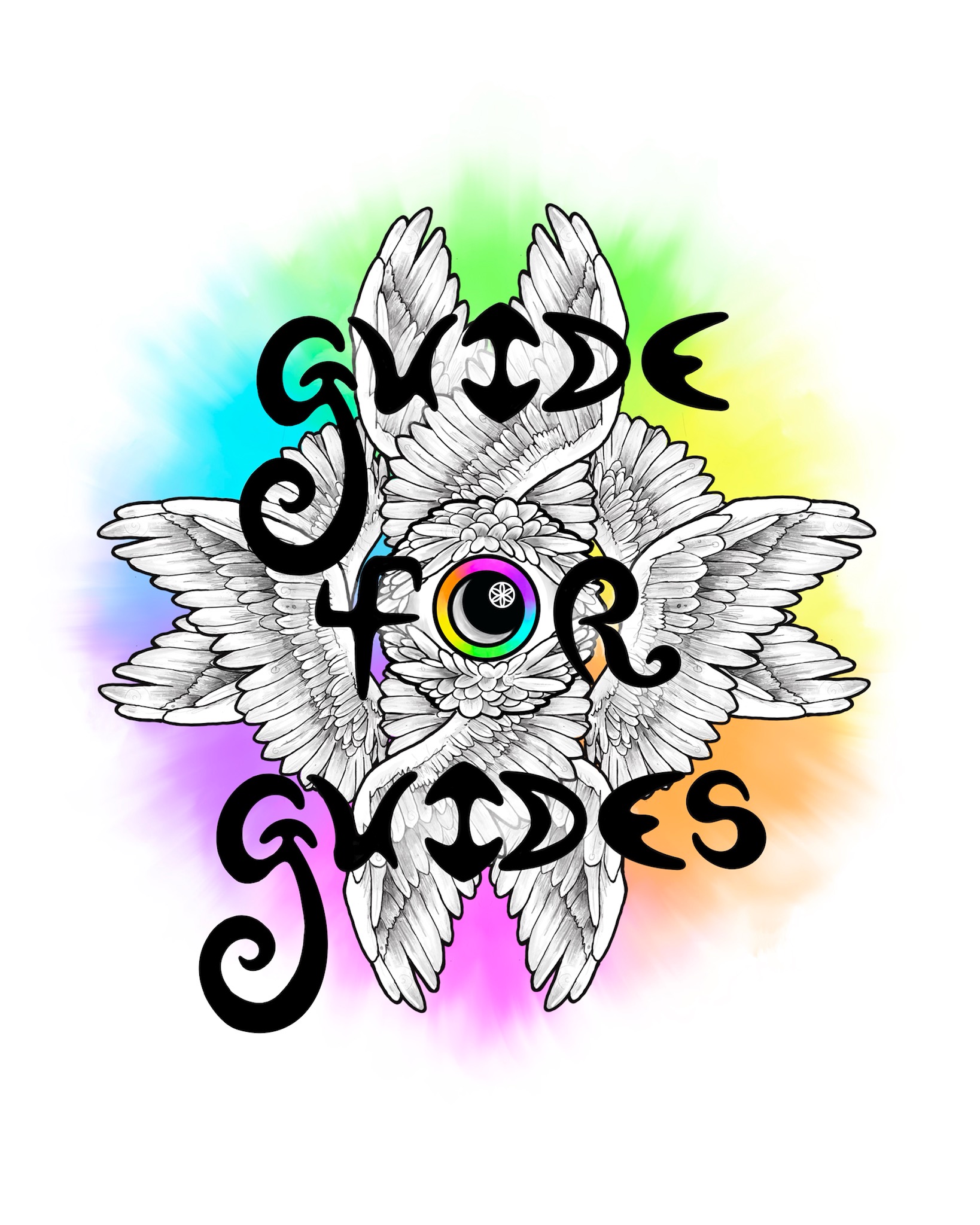Version 23.2.22 :: authored by Reverend X Razma
G4G is official EBC literature.
NOTAFLOF : no one turned away for lack of funds
This offering is by donation – finances should not be a barrier to accessing this work. If this level of donation is not possible for you, please email eartbodychurch@gmail.com – we are happy to discover a method of energetic exchange that is joyful for you, including payment plans, work trade, future contributions, or a gift copy. Your abundant generosity fuels accessibility to, and evolution of, this body of work.
The donation collected for G4G goes directly to producing additional content.
G4G is the textbook for the G4G Training.
To learn more about the G4G Training click here.
This download is in PDF form, for EPUB for eReaders, please email earthbodychurch@gmail.com
Guide for Guides description :
One of the most powerful aspects of psychedelics is their capacity to help people access and work with deeply buried trauma. Yet this capacity is a double-edged sword: somatically- and psychologically-stored trauma responses can overwhelm psychedelic journeyers, and/or catch them off-guard if they are imbibing recreationally.
Recently, calls to make various realms of care (such as medicine, spiritual communities, and personal development work) “trauma-informed” has fortunately taken root. Surprisingly, the psychedelic community has only recently fully embraced the need for trauma-informed practice, and the ethics that go along with it.
Organizations such as MAPS have developed important and powerful ethical guidelines for psychedelic practitioners in a professional context. Nonetheless, professional therapy is only one of the four contexts in which someone might space-hold (guide, facilitate, or care) for someone in a psychedelic experience—experiences in which trauma reactions might arise.
Guide for Guides makes a unique contribution to the literature on psychedelic spaceholding by delineating these four different contexts: professional (including therapy and paid guiding experiences), peer-to-peer space-holding (“trip-sitting”), co-imbibing with friends, and “in the wild.” The first context has thankfully received a great deal of attention (including from MAPS). However, it is also the context with the most clear-cut and formalized ethical boundaries, and therefore does not encourage discussion of situations that might arise more informally between friends or acquaintances.
Trip-sitting, and/or co-imbibing with friends, are more informal contexts, which are more common than therapy, and allow for a wider range of interaction between participants. This wider range presents both promises and perils. Many things that would be likely inappropriate in a therapeutic context (such as extensive physical contact, co-imbibing substances, or highly active co-creative guiding) might be appropriate and even beneficial among friends. Furthermore, there is a vast difference in the way that therapists might respond to trauma issues arising in psychedelic space, versus trip-sitters, versus co-imbibing friends, versus a first-responder helping someone with a psychedelic emergency “in the wild.”
Until now, there has not been a guide that helps psychedelic explorers distinguish between the different types of space-holding they might offer or receive, compares and contrasts the ethical requirements of boundaries of each, and educates people (including non-professionals) about appropriate responses to trauma issues within each context.
At a time when psychedelics are becoming corporatized, and legions of “suits,” “tech bros,” and “weekend shamans” are coming into the field with profit in their eyes and little experience with the nuances of trauma-informed care and ethical boundaries, Guide for Guides is both a wake-up call for the new psychedelic business community and a helpful, welcoming deepening of practice for seasoned psychonauts.



Reviews
There are no reviews yet.